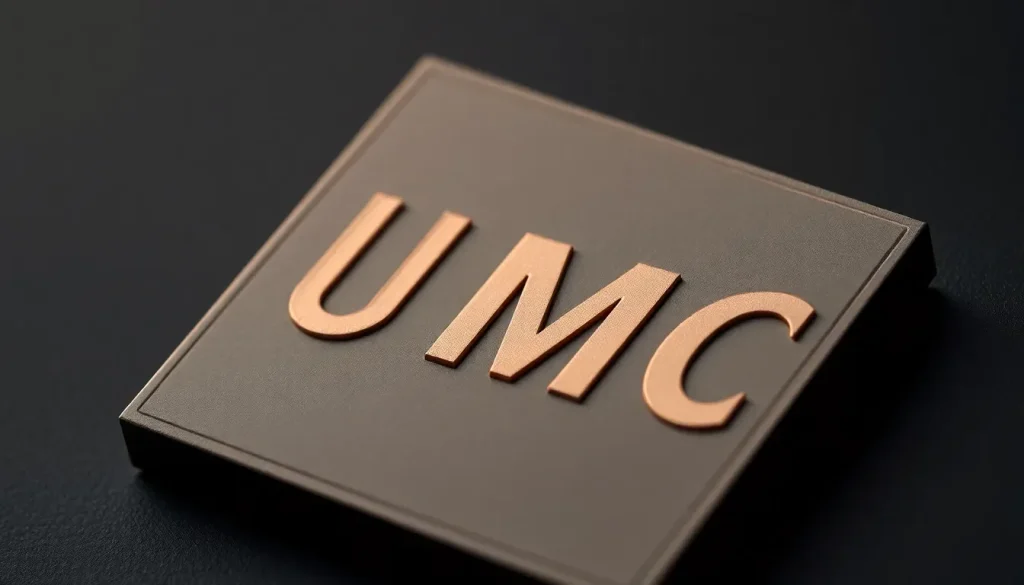Taiwan UMC pleads guilty to Micron intellectual property theft

The world of technology and intellectual property is often fraught with disputes and legal battles. One of the most significant recent cases involves United Microelectronics Corp. (UMC), a major Taiwanese semiconductor manufacturer, which has pled guilty to charges of trade secret theft from Micron Technology, a prominent American memory chip manufacturer. This case highlights the complexities of international business, the importance of intellectual property rights, and the ongoing tensions in the global semiconductor industry.
In a significant turn of events in the semiconductor industry, UMC has agreed to a guilty plea in a San Francisco court, acknowledging its role in stealing valuable trade secrets from Micron. The company has been ordered to pay a hefty fine of $60 million as part of the resolution of this case. This guilty plea is especially notable as it comes with the dropping of more severe charges, including economic espionage and conspiracy, in exchange for UMC's cooperation in an ongoing investigation against its co-defendant, Fujian Jinhua, a Chinese state-owned enterprise.
Background of the Case
The conflict between UMC and Micron dates back several years and stems from allegations of significant intellectual property theft. Micron, a leader in the production of computer memory, filed a lawsuit against Fujian Jinhua in 2017, claiming that the Chinese company had utilized Micron’s proprietary DRAM manufacturing technology, which UMC had allegedly acquired through illicit means.
In 2018, the U.S. Department of Justice (DoJ) stepped in, accusing UMC of stealing intellectual property from Micron’s subsidiary in Taiwan and subsequently supplying this information to Fujian Jinhua. The accusations highlighted a broader concern regarding the theft of American technology by foreign entities, particularly from China, which has been striving for self-sufficiency in the semiconductor sector.
The Implications of the Guilty Plea
In light of UMC's guilty plea, U.S. Deputy Attorney General Jeffrey Rosen expressed serious concerns about the impact of such actions on national security and economic competitiveness. He stated that UMC's actions were aimed at enabling China to achieve a critical goal: achieving self-sufficiency in computer memory production without incurring the costs associated with research and development.
As part of the plea agreement, UMC has committed to provide assistance in the investigation and prosecution of Fujian Jinhua. This cooperation could potentially lead to further revelations about the extent of intellectual property theft in the semiconductor industry and the involvement of foreign entities in such practices.
The Role of UMC in the Semiconductor Industry
United Microelectronics Corp. is recognized as the fourth-largest contract semiconductor manufacturer globally. The company has a significant presence in the low-cost manufacturing sector, and its connection with Fujian Jinhua has raised eyebrows within the industry.
In May 2016, UMC entered into a partnership with Fujian Jinhua to develop two generations of DRAM process technology. This agreement mirrored technologies that had been in mass production since at least 2012. The first-generation DRAM process technology was reportedly transferred from UMC to Fujian Jinhua in September 2018, which set off a series of legal challenges.
Allegations of Recruitment and Misappropriation
One of the core elements of this case involves UMC's recruitment strategy. The company is accused of hiring engineers from various firms, including Micron Memory Taiwan Co. (MMT). Some of these engineers allegedly brought with them confidential materials and trade secrets from their previous employers, which were then utilized in the joint DRAM project with Fujian Jinhua.
This practice underscores the ongoing issue of talent poaching in the tech industry. Notably, two former MMT employees are said to have played significant roles in the transfer of DRAM intellectual property, further complicating the legal landscape surrounding this case.
Future Legal Proceedings
As a result of UMC's guilty plea, the focus now shifts to Fujian Jinhua, which faces trial in 2021. Legal experts anticipate that this trial will uncover more details about the alleged conspiracy and the broader implications for U.S.-China relations in the technology sector.
David Anderson, a U.S. attorney for the northern district of California, noted that UMC's admission of guilt could bolster the prosecution's case against Fujian Jinhua, paving the way for a more comprehensive examination of the alleged theft of American intellectual property.
Key Takeaways from the UMC Case
- Significant financial penalties: UMC's $60 million fine underscores the seriousness with which the U.S. legal system treats intellectual property theft.
- Impact on U.S.-China relations: The case highlights ongoing tensions between the two nations regarding technology transfer and intellectual property rights.
- Broader implications for the semiconductor industry: This case may have ripple effects across the industry, influencing how companies approach partnerships and talent acquisition.
- Future legal precedents: The outcome of the trial against Fujian Jinhua may set important legal precedents regarding intellectual property theft in international business.
The UMC case is a stark reminder of the complexities and challenges faced by companies operating in the high-stakes arena of technology. As the trial against Fujian Jinhua approaches, the industry will be watching closely to see how these issues are resolved in the courtroom and what implications they might have for the future of semiconductor manufacturing and global trade.




Leave a Reply